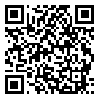BibTeX | RIS | EndNote | Medlars | ProCite | Reference Manager | RefWorks
Send citation to:
URL: http://irj.uswr.ac.ir/article-1-507-en.html
2- University of Social Welfare and Rehabilitation Sciences, Tehran, Iran.
Objectives: The purpose of this research was to explore the possible differences in the working memory of monolingual (Persian) and bilingual (Persian-Baluchi) children. We wanted to examine if there is a statistically significant relationship between working memory and bilingualism.
Methods: Four working memory (WM) tests, assessing three WM components, were administered to 140 second grade school students, of whom 70 were monolinguals (35 girls and 35 boys) and 70 were bilinguals (35 girls and 35 boys). The tests used are the following: Forward Digit Span Test, Backward Digit Span Test, Non Word Repetition Test, Maze Memory Test. The results of the two groups were analyzed with multi-group confirmatory factor analysis, aiming to find out any differences in the working memory function of bilingual and monolingual children, and to determine which group has an advantage.
Results: The multi-group confirmatory factor analysis was used to measure various WM factors across the two language groups. The findings showed that there were significant language effects on Forward and Backward Digit Span and Non Word Repetition Task (P<0.001), and no significant language effects on Maze Memory (P>0.001).
Discussion: This study revealed that bilingual children had a better WM, which holds processes and updates information over short periods of time, than monolingual children.
Received: 2015/06/1 | Accepted: 2015/08/6 | Published: 2015/09/1





